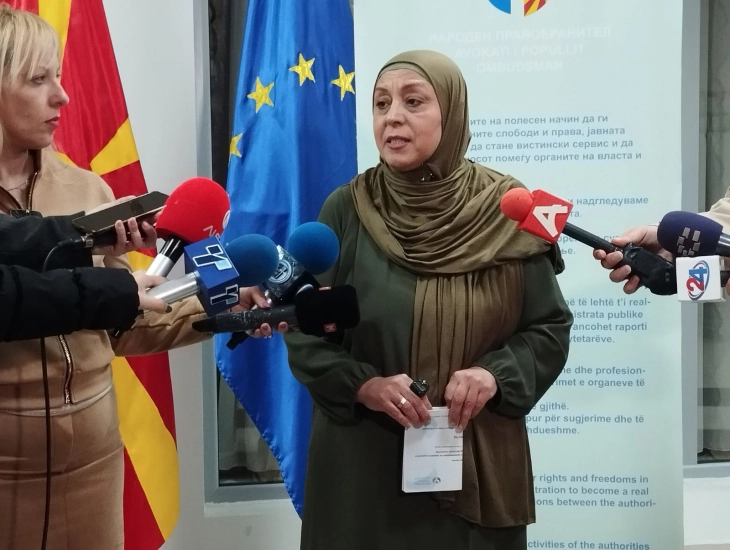Peer violence most common among elementary school children, around thirty complaints filed to Ombudsman
- Ahead of World Children's Day - November 20, the Ombudsman on Tuesday launched a campaign to raise awareness on children's rights and protect them against violence, including peer violence. A video on breaking the cycle of peer violence, as part of the EU-funded project "EU Support for Rule of Law", is also part of the campaign.

Skopje, 19 November 2024 (MIA) – Ahead of World Children's Day - November 20, the Ombudsman on Tuesday launched a campaign to raise awareness on children's rights and protect them against violence, including peer violence. A video on breaking the cycle of peer violence, as part of the EU-funded project "EU Support for Rule of Law", is also part of the campaign.
Vaska Bajramovska-Mustafa, State Counsellor at the Ombudsman's Office, said this year the Ombudsman has received around thirty complaints about peer violence, noting that the situation is worse every year. She added that peer violence is most common among elementary school students, even among second- and third-grade children, while it is less common in secondary schools.
During school visits and in conversations with students, Ombudsman teams found that peer violence is often used as a tool to show power or dominance of some children among their classmates. The situation in the schools, she said, "right now is an alarm that a lot of effort has to be invested in change."

"Weaker children, children who are more withdrawn, very often children with disabilities or children who come from much poorer or insufficiently educated families always appear as victims... The data show that the situation is the same, if not worse, compared to the previous year. The complaints we receive show that, unfortunately, peer violence is still present, especially in schools, as well as outside, in city parks. Instead of friendship, we use violence. Compared to last year, the data show that the number of complaints at the Ombudsman institution is around thirty again, mostly involving physical violence, but our visits to schools show that, unfortunately, we still do not recognize other forms of violence. That's why, through the EU project, we decided to start an awareness campaign with a video to promote children's rights and protect children against peer violence," said Bajramovska-Mustafa.
She pointed out that the Ombudsman's position, which the institution highlights every year, is that "we must point to the harmful consequences of peer violence, and we must raise and educate children from an early age that conflicts are resolved through dialogue, not by the use of force."
She added that the campaign, which will visit schools across the country, encourages all stakeholders to join in "this important mission to end peer violence and create safe and supportive communities." Education and cooperation between parents, teachers and school principals is key, she stressed.
According to her, professional services should also be fully equipped to recognize violence and how to take protective measures, noting that trust in them is "at the lowest level", just as trust in class teachers is also weak.
"This campaign is a call to action for all of us - teachers, parents, carers, policymakers and children and young people themselves. Together we can create an environment where respect, empathy and solidarity will replace violence and bullying," Bajramovska-Mustafa said, noting that children's rights are guaranteed by the United Nations Convention on the Rights of the Child.
Asked what does the Ombudsman undertake, in line with its competences, after receiving a complaint about peer violence, she said that if the complaint is clear enough and contains the necessary data confirming violence and violation of the child's rights, the Ombudsman sends a notice to the school director with a recommendation guide on overcoming the problem.
"In the event that certain information cannot be fully confirmed with the complaint, then we address the school itself to examine the complaint, we ask for evidence, and very often, almost most of the time, we also involve the State Education Inspectorate, which, according to its competences, has the obligation to carry out extraordinary supervision. And they always act on our requests, submit evidence and depending on the established situation, we take further measures," Bajramovska-Mustafa added.
Photo: MIA







